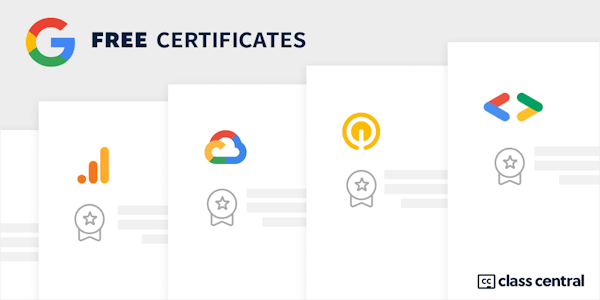In this second installment of the Dataflow course series, we are going to be diving deeper on developing pipelines using the Beam SDK. We start with a review of Apache Beam concepts. Next, we discuss processing streaming data using windows, watermarks and triggers. We then cover options for sources and sinks in your pipelines, schemas to express your structured data, and how to do stateful transformations using State and Timer APIs. We move onto reviewing best practices that help maximize your pipeline performance. Towards the end of the course, we introduce SQL and Dataframes to represent your business logic in Beam and how to iteratively develop pipelines using Beam notebooks.
Overview
Syllabus
- Introduction
- Course Introduction
- Beam Concepts Review
- Beam Basics
- Utility Transforms
- DoFn Lifecycle
- Serverless Data Processing with Dataflow - Writing an ETL pipeline using Apache Beam and Dataflow (Java)
- Serverless Data Processing with Dataflow - Writing an ETL Pipeline using Apache Beam and Dataflow (Python)
- Quiz 1 - Beam Concepts Review
- Module Resources
- Windows, Watermarks Triggers
- Windows
- Watermarks
- Triggers
- Serverless Data Processing with Dataflow - Batch Analytics Pipelines with Dataflow (Java)
- Serverless Data Processing with Dataflow - Batch Analytics Pipelines with Dataflow (Python)
- Serverless Data Processing with Dataflow - Using Dataflow for Streaming Analytics (Java)
- Serverless Data Processing with Dataflow - Using Dataflow for Streaming Analytics (Python)
- Quiz 2 - Windows, Watermarks Triggers
- Module Resources
- Sources & Sinks
- Sources & Sinks
- Text IO & File IO
- BigQuery IO
- PubSub IO
- Kafka IO
- BigTable IO
- Avro IO
- Splittable DoFn
- Quiz 3 - Sources & Sinks
- Module Resources
- Schemas
- Beam schemas
- Code examples
- Serverless Data Processing with Dataflow - Branching Pipelines (Java)
- Serverless Data Processing with Dataflow - Branching Pipelines (Python)
- Quiz 4 - Schemas
- Module Resources
- State and Timers
- State API
- Timer API
- Summary
- Quiz 5 - State and Timers
- Module Resources
- Best Practices
- Schemas
- Handling un-processable data
- Error handling
- AutoValue code generator
- JSON data handling
- Utilize DoFn lifecycle
- Pipeline Optimizations
- Serverless Data Processing with Dataflow - Advanced Streaming Analytics Pipeline with Dataflow (Java)
- Serverless Data Processing with Dataflow - Advanced Streaming Analytics Pipeline with Dataflow (Python)
- Quiz 6 - Best Practices
- Module Resources
- Dataflow SQL & DataFrames
- Dataflow and Beam SQL
- Windowing in SQL
- Beam DataFrames
- Serverless Data Processing with Dataflow - Using Dataflow SQL for Batch Analytics (Java)
- Serverless Data Processing with Dataflow - Using Dataflow SQL for Batch Analytics (Python)
- Serverless Data Processing with Dataflow - Using Dataflow SQL for Streaming Analytics (Java)
- Serverless Data Processing with Dataflow - Using Dataflow SQL for Streaming Analytics (Python)
- Quiz 7 - Dataflow SQL & DataFrames
- Module Resources
- Beam Notebooks
- Beam Notebooks
- Quiz 8 - Beam Notebooks
- Module Resources
- Summary
- Course Summary
- Your Next Steps
- Course Badge


